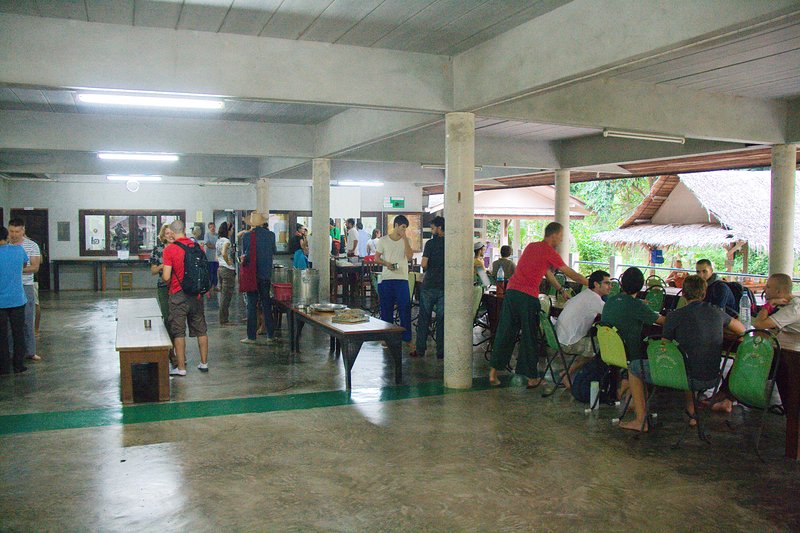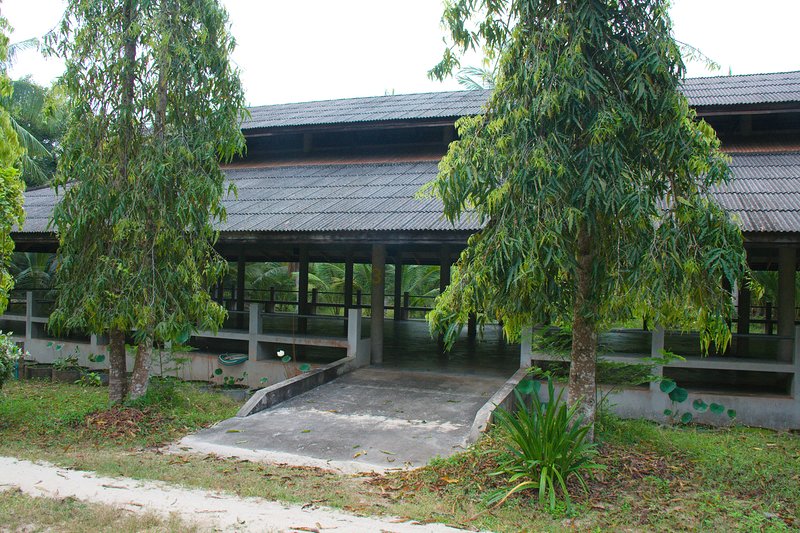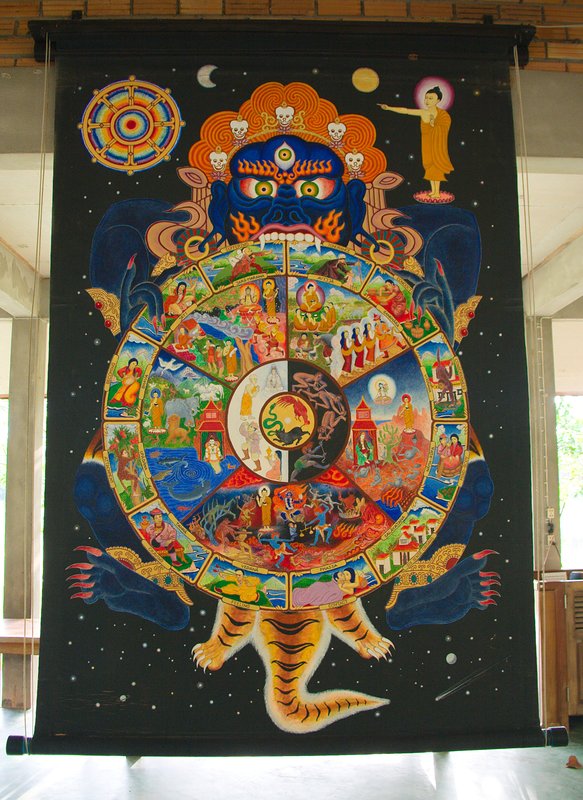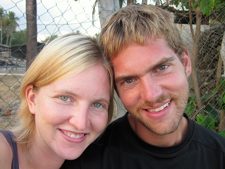But first… A few words on our 80 day holiday
Thanks for letting us take such a long holiday. If you’ve been following us for a while, then you’d catch my lie if I said this is the first break we’ve had since this blog started 1070 days ago. So I’ll come clean and admit that we’ve taken blogging holidays before, and guess what… we’ll do it again.
You’ll forgive our absence though, won’t you dear reader? The important thing now is that we’re back to writing. So let’s just pick things up where we left of in Thailand, and speak no more about it. Okay?
No! I guess that’s fair, we have been offline for quite a while. And yes, to you our life probably seems like it is a big holiday. I should have known that you’d have some questions about just what it is that a travel blogger does when they go on holiday. And you’re right, it’s only fair that I tell you.
- We stopped travelling. Not permanently, but for a while. We spent some time crashing in our friends’ and families’ spare bedrooms, socializing, and otherwise trying to catch up with people we haven’t seen since we left home a couple of years ago.
- We started working. Actually, Ashley started working. She managed to get her name on the substitute teaching list. Me… I’ve spent most of my time developing 100% whole grain bread recipes. I’ve been harbouring a dream of one day starting a bakery, so I figured I should spend a little time baking. Technically I’m not allowed to count it as work because I didn’t make any money doing it.
- About 3 months into living at home we got really bored. Not to mention the school year ended, and neither of us were making any money working anymore. So we went back to “work” traveling and blogging. We spent two months this summer road tripping through Eastern Canada. We’ll get around to posting some pics and stories one day. But you’ll have to wait. We’re going to keep with our generally chronological post order and finally finish writing about our time in South East Asia first.
- We finished up our road trip by mid September and ended up back home again. This time we’re taking advantage of my sister’s spare bedroom. Thanks, sis, we appreciate it.
- Working again. Ashley’s landed a temporary teaching contract that lasts until we head to Bhutan in January. I kept on baking for a while and spent some time learning to program with Python. I’ve been toying with making some online income programming for a while, so I figured I could spend some time developing my programming skills. Then I became real bored and mopey. In the end I had no choice but to go out and get a real job to occupy myself. For those that are curious, I’m working with a home builder doing residential construction.
So that’s it, a travel blogger’s holiday is a lot like everyone else’s regular life. And just like you, I can only take so much time on holiday before I really want to go back to my regular day job. So here we are.
10 day Thai Silent Meditation Retreat (Mike’s Thoughts)
If you didn’t read our 80 day old introduction to this retreat, you really should. I’m not going to re-hash all that was already said. Consider it prerequisite reading.
First up, I enjoyed the retreat. A lot. Like a lot, a lot. Which is odd, as I was sort of teetering on not going before it started. I mean after reading the rules and the daily schedule for the retreat I was probably thinking along the same lines as you. Why would anyone want to do this? To be honest, it sounded a bit like torture.
Obviously, the reality was far different. The day the retreat ended I was really feeling good. I felt like I had learned enough to write several doctorate theses in the fields of psychology, philosophy, and religion. At the time, I was so excited to write this blog post that I whipped out my laptop and wrote and wrote and wrote. I even did up a couple of graphical conceptual models to help describe the various parts of the brain and how they interact to form what is commonly referred to as human consciousness.
Then, I started talking about my experiences with some of the other people from the retreat, including Ashley. I was expecting to be preaching to the choir so to speak, but what I learned is that not a single person agreed with me or experienced anything similar.
Needless to say, I took a cold hard second look at all the universal truth I’d uncovered during my 10 days, and came to the realization that there was nothing universal about it. It is incredibly profound, it is incredibly useful, but it only has relevance or meaning to just one person… myself.
As a result, I’ve chosen to spare you from all the preachy jibber jabber and leave it to you to go to a retreat like this one and find your own truths if you so desire. What you’ll get here are my more superficial thoughts on the whole thing.
Food
The food was delicious and healthy. The diet included plenty of whole grains (rice) and balanced proportions of vegetables, starches, and proteins. I’ve noticed since becoming vegetarian that eating balanced meals with whole grains is the difference between feeling fantastic and feeling lethargic. This was good food, and if you want to become vegetarian yourself one day, I’d suggest modelling your diet after these meals.
On the flip side, the meals were fairly repetitive, keeping with the Buddhist philosophy that you really shouldn’t be looking forward to you next meal. In fact there is a meal time reading that emphasizes how you should only eat to stay alive, not for pleasure. None the less, the food tasted good to me. Even if it was the substantially the same day after day. Naturally, I didn’t mind the lack of meat being served either.
Meal Frequency
Only eating twice (or once) a day didn’t really do much for me. After lunch I routinely felt sick and bloated from having just eaten an entire days worth of food in one sitting. The point of it is to help your meditation by keeping your mind off of your stomach, but I found it had the opposite effect.
Mindfulness
The goal is meditation, and meditation requires concentration. Unfortunately, as I found out in a hurry, if you haven’t practised meditation before, you’re probably incapable of concentrating even for a little while. Left to its own devices, the brain spends it’s waking hours in constant thought. It’ll think about everything you see, smell, hear, touch, and taste. It’ll also worry about the future, and re-live memories of the past. And it does these things weather you want it to or not.
The solution is what the Buddhists call mindfulness or what we might call “living in the now”. Basically, you actively pay attention to something boring, like your breath, and ignore everything else. Over time, your brain will slow down it’s constant thought chatter and start paying attention to it too.
Over the 10 days, by trying actively to not think about anything, or remember anything, or worry about anything, or feel anything, I gained the level of mastery over my brain to actually stop it from doing those things.
Believe it or not, as a result I really don’t get stressed or worried about anything anymore. Unless I let myself that is. That’s part of the reason I could go 80 days without writing a blog post and not really feel all too bad about it.
Studying the Brain
Once I got the hang of slowing my brain down by concentrating on boring stuff, I started to analyze how my brain was working. When I got to the point that I was only having one or two thoughts a minute, I was able to reflect on where each thought came from and why I had that thought. I could also study my gut reaction, and my emotional response. It’s when I started doing this that I really started to get into the subject matter that I thought could fuel a productive career as a humanities academic.
To me, this was the most rewarding part of the whole meditation retreat. I came into contact with myself, and I began to figure myself out. This is the reward that trumps all of the hardships of the retreat.
Meditation
Of course, there was a lot of meditation time. I thought that sitting on the ground cross-legged for several hours a day would be unbearably painful for my stiff knees, and it was. So I didn’t. I spent most of my time propped up on a wooden box, or several pillows. After that, I really didn’t have any comfort problems.
It took about 4 days before I had any success with my meditation at all, but once I figured it out, I was able to fall into a deep meditation within about 15 minutes of starting. For me the secret was keeping from moving any muscles – twitching a finger, straightening my back, flexing a leg muscle, any slight movement aside from breathing would set me back to square one.
Describing meditation is difficult, and likely one of those things that varies person by person. Please don’t expect that it’ll be the same for you as it was for me.
In my opinion, meditation is basically about tricking your brain into falling asleep while remaining conscious. I know that doesn’t make much sense, but try to imagine that the part of your brain that does the thinking and the part that does the remembering are separate pieces. Normally they both fall asleep at about the same time, so you don’t remember much of it. When you are meditating however, your brain falls into different levels of slumber but you remember everything.
Strangely, the first two levels of meditation for me were marked by a feeling of intense pleasure or desire, followed by a feeling of intense satisfaction. It’s these two feelings that make up the Buddhist teachings on the cycle of want, living in the now, and suffering. After experiencing it, I get it, but there’s no way to explain it to you. It’s one of those things you just have to experience and get for yourself.
Level 3 of meditation felt a lot like daydreaming
Level 4 was similar to what you might experience when you come out of a very deep, vivid, and realistic dream/nightmare suddenly in the middle of the night.
Level 5 contained nothing but brain inactivity and slumber.
That was pretty much it for me. If you are trying to connect to the teachings of Buddha, I imagine that the actual meditation will be very important for you. For me, I found the analytic studying of my brain while being awake and mindful much more revealing and interesting than what I could study while meditating.
Stone Beds
The wooden pillows and concrete mattresses were uncomfortable, but I slept like a rock, and woke up refreshed every morning. There’s something to it. I thought it’d be worse than it was.
The Gardens
Defiantly a highlight. I spent a lot of hours looking at exotic plants, watching fish, birds, and ants. It’s about as stimulating of an environment as you could want, and really highlights the pure enjoyment you can get from nature if you can get your brain to pay attention to it.
Buddhist Teachings
The Dharma talks were fairly light, and mostly tuned towards the purpose of the retreat: Meditation. I enjoyed them, as they broke up the day, and gave a bit of cultural insight that I wouldn’t get hanging out on a beach. Probably the most interesting thing to me was the differences between this school of Buddhism and others. Even within Thailand.
Apparently, the ancient language of Pali that the Buddha wrote in, has a very limited vocabulary and can be translated to mean many different things. For example, here they believe that the Buddha was teaching that to want is suffering, and that allowing yourself to want leads to a cycle of more wanting and more suffering. Therefore you should not allow yourself to want so you can break the cycle and end suffering.
This same teaching, is often translated by others to mean that life is suffering, and life is made up of many deaths (reincarnation). Therefore you should try to become enlightened so that you can end your cycle of reincarnation and end suffering (i.e. die for good).
Hugely different ideas, translated from the same words. Like I said, interesting.
Mosquitoes
Really, really, really bad. But only when the sun was rising and setting. The rest of the time they were fine. I didn’t wear any mosquito repellent, but that was probably a mistake. Did I mention you’re not allowed to kill them? So when they bite you are supposed do nothing. On average, it seemed to take about 2 minutes for them to get their fill and fly off.
Yoga
There were yoga classes every morning. This is an adaptation for westerners, as actual Buddhist teachings require no exercise whatsoever. I understand the rule to some degree, as exercise does stir up the mind, and that’s not good for meditation. Nonetheless, I was glad to have a little yoga time every day.
Silence
This is what makes it all work. Even though you are in a retreat with 100 other people, it really feels like it’s just you. All alone. With nothing but your own thoughts for company. This is why it works.
Separation of the sexes
It was tough being in the retreat with Ashley and not being able to talk to her or sit beside her at meal time. We agreed ahead of time not to talk to each other at all and to try to take a break from each other as if we really were there alone. We cheated a bit, not by talking, but by leaving flowers for each other.
It’s hard to say which would be better – to be at the retreat at the same time like we did, or to go separately. At least the way we did it, I didn’t have to think about what a great time Ashley would be having on the beach while I was waking up at dawn and watching mosquitoes sip at my blood.
10 days
The length seemed about right. It wasn’t really until day 4 that I seemed to get anywhere, so I wouldn’t bother with a shorter retreat. By day 10, I seemed to have enough figured out that I wanted a break. For me, 10 days was perfect and I’m glad it wasn’t a day longer or a day shorter.








Mike (and Ashley!),
I just found your site. Thanks for sharing all your great experiences. I love how you’re living your lives. This retreat sounds so interesting. Being silent would be so difficult. I imagine I’d learn so much more about myself, and life!
It’s definitely a learning experience.
I would also love to join in a retreat. This retreat sounds really interesting.
I’m pretty sure they do them all over the world. We met a fellow in Montreal this summer who had a friend in a meditation retreat there. If you have the interest, I’d recommend you give it a try.
Oh my, oh my. Not being able to kill mosquitos? Sleeping on a stone bed? You are a better person than I, but I am glad you seemed to get something out of it.
I know, it sounded like torture when Ashley suggested it to me. Fortunately, there really is something to the Buddhist’s philosophy of contentment through meditation. It was actually enjoyable. Strange but true…
What’s the best way to guarantee that you will get a place? i really want to try this out but i would be traveling from England and would want a guaranteed place in the 10 day silent meditation.
We arrived one day early. The monastary associated with the retreat provides free accomodation, and was quite a nice experience in itself. Being that we were so close to the retreat for registration, we were some of the first to be accepted.